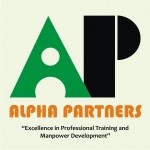|
|
Safety and Risk Management in the Education Sector
USD 6,000 |
Venue: Accra - Ghana
On successful completion of the course participants will be able to:
- Demonstrate an understanding of the fundamental principles underlying safety and risk management.
- Understand issues related to the practical application of safety and risk management.
- Establish expertise relevant to the practice of safety and risk management.
- Demonstrate management skills related to planning, developing and report writing activities.
- Demonstrate an understanding of the professional obligations related to the discipline of safety and risk management.
Course Content
- Introduction: safety and loss prevention, definition of hazard, risk and risk assessment, scope and outline of risk management, frequency and severity, intrinsic and extrinsic safety, risk balance, Pareto principle, epidemiological approach, hazard warning.
- Identification of hazards and basic definitions: toxicity, flammability, sources of ignition, fires, explosions, ionizing radiation, noise pollution, temperature, and pressure deviations.
- Fire protection: classification of fires, fundamentals of fire suppression, fire protection systems and facilities, thermal radiation.
- Toxicity and safe handling of materials.
- Hazard and operability studies (HAZOP): basic principles, explanation of guide words, procedures, critical examination of flow sheets.
- Risk analysis; acceptable risks and safety priorities, cost of saving a life, frequency of accidents, safety check lists, fault trees, assessment of risks from complex plants.
- Strengths and limitations of quantitative risk assessment, modelling, a systematic approach to risk reduction, human factors, management of process safety, insurance.
- Industrial hygiene, identification MSDS, evaluating exposure to volatile toxicants.
- Source models, flow of liquid through a hole, liquids through pipes - 2K method, vapour and gases through pipes, flashing liquids.
- Toxic release and dispersion models, parameters affecting dispersion.
- Fires and explosions, definitions, flammability characteristics of liquids and vapours
For Whom
Teachers, Lecturers, HOD, HOS, Educational planners, policy analysts, education statisticians and other professionals involved in educational planning at central or decentralized level.
Training Methodology
The training methodology combines lectures, discussions, group exercises and illustrations. Participants will gain both theoretical and practical knowledge of the topics. The emphasis is on the practical application of the topics and as a result participant will go back to the workplace with both the ability and the confidence to apply the techniques learned to their duties.
Course Booking
Please use the “book now” or “inquire” buttons on this page to either book your space or make further enquiries.
| Accra - Ghana | Jul 28 - 01 Aug, 2025 |
| USD 6,000.00 | (The Workshop fee is 6000 (Six Thousand USDollars) only per participant to cover workshop literature and materials, executive bag, tea/coffee, lunch, photograph and certificate.) |
Chris Onwuasigwe, FCA – 08033045484 08033045484
Related Courses
 Process Plant Troubleshooting and Engineering Problem Solving
Process Plant Troubleshooting and Engineering Problem Solving
5 days, 19 - 23 May, 2025
Alpha Partners
Currency Converter





